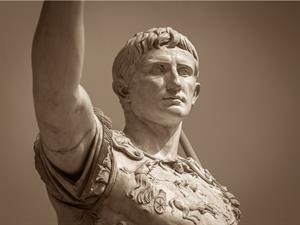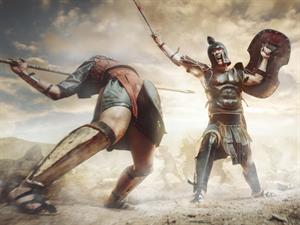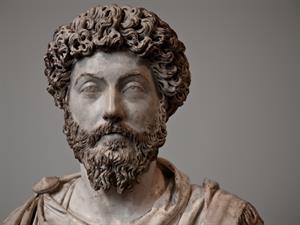PDF chapter test TRY NOW
The Rule of Consuls:
Post the death of the Gracchus brothers after their stand against the Patricians; the government structure slowly witnessed a change. Instead of keeping the king as the power centre, the new idea of Consuls was put in place.
Consuls: The Consuls were chosen by the government or the popular assembly. Two Consuls were chosen every time, with each serving a term of one year.
Some of the notable personalities of Greek history like Julius Caesar, Pompey, Mark Antony and Crassus served as the Consuls.
The Consuls held the positions of both Military and Political heads of the state. Marius was one such ruler who became Consul with the help of “Propertied class below the Senates or the Equites”.
Marius and Sulla:
Marius began from where the Gracchus brothers left; when he became the Consul he tried to pass the land distribution bill in the Senate. This bill was met with widespread agitations and violence.
The Elite class opposed the bill, and the followers of Marius and his other consul Sulla clashed with each other. At the same time, the forces of Marius were defeated, and Sulla expelled Marius.
Lucius Sulla: Also known as Sulla, was seen as a dictator as his method of reforming the government involved brutal mechanisms and severe actions. He was later killed by Cinna.
The Spartacus Revolt (73 BC):
The Roman empire witnessed more slave revolts as they had more slaves who were captured as prisoners of war from various places. These slaves were traded for the revenue of the empire.
The Island of Delos: This island is located in the eastern Mediterranean, where the slaves from other countries are brought to this island and traded with other countries. This Island is also known as the “Great Slave Market”.
The Slaves were employed in various jobs and were treated inferior and with disdain by the ruling class. The Slaves of Sparta rose against the Roman empire and posed a grave threat.

The Spartacus Revolt
The Spartan slaves initially tried to free Sparta from slavery which later aroused their sense of freedom and thus provoked them to employ barbaric rebellions against the state.
The Revolt of Spartacus was one of the Watershed moments in the history of Rome, which was put down by Crassus, the consul general who crushed the revolt and killed Spartacus.
Augustus and the Principate:
The Consul generals engaged in war with each other and started to overthrow one another, like Pompey subverting Caesar and Octavian overthrowing Mark Antony.

Statue of Augustus
Most of the people of the Senate felt that Octavian, later known as Augustus, was the ablest of all the rulers among his contemporaries.
Principate: When Augustus became the de facto ruler of the State in 27 BC, to achieve the elusive political stability he established a systemic rule called the “Principate”.
Augustus became all-powerful and strengthened the army services, which brought back the much needed political stability in Rome. He was also credited for promoting art and architecture during his reign.
The Principate Society:
Under the reign of Augustus, the privileged class reached its zenith, and the period also witnessed its greatest heights in external trade, which the Shores of the Mediterranean ably supported.

The Gladiator
Luxury items like semi-precious stones, silk cloth were brought from the eastern countries. More playgrounds, markets, and Colosseum were constructed to make people engage in various sports and spend their lives in leisure.
Gladiators: They are warriors among slaves who are made to fight and kill to entertain the people of Rome. The fight among the Gladiators mostly takes place in closed areas like the Colosseum and Circus.
Art and Architecture under Augustus:
Emperor Augustus was a great patron of arts and literature who encouraged various writers of Rome and patronized them, which in turn brought back the lost glory of the empire.
Notable writers like Seneca, Tacitus and Pliny lived during the period of Augustus.
Pliny: Also known as the Pliny, the Elder wrote a voluminous account on science known as “Natural History or the Natural Historia”. This book served as a great source of Science during the later years.
Law and order reached its pinnacle under the Principate form of government. Towering edifices were built with places of worship and religious congregation under Augustus rule.
The Principate after Augustus:
Augustus breathed his last in 14 BC; after his death, Rome went into capable rulers who could not rule for a long period. Most of the rulers post the Augustus era were inclined towards Autocracy rather than Democracy.
Marcus Aurelius: He ruled Rome from 161 BC to 180 BC. He was well versed in Philosophy and wrote many books on the lines. He was also credited to be the “First Roman ruler to send an embassy to the Asian country, China”.

Marcus Aurelius
